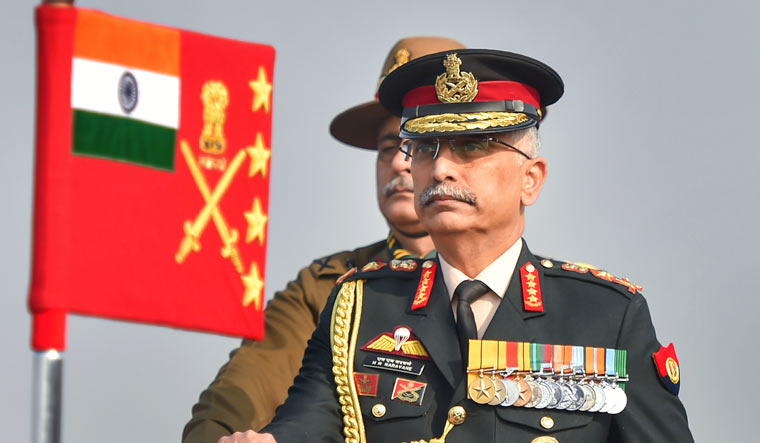Nepal objecting to India’s roadwork at ‘someone else’s behest’: Gen Naravane
 NEW DELHI : Less than a week after Nepal objected to a new road being built by India, the army chief, General MM Naravane, suggested that it is in fact China that is creating a flashpoint between Delhi and Kathmandu.
NEW DELHI : Less than a week after Nepal objected to a new road being built by India, the army chief, General MM Naravane, suggested that it is in fact China that is creating a flashpoint between Delhi and Kathmandu.
“I don’t know what they are actually agitating about. There is a reason to believe that they might have raised this problem at the behest of someone else and that is very much a possibility,” the chief said at an online conference today.
Last Friday, Defence Minister Rajnath Singh inaugurated via video link the 80-kilometre (50 miles) road from Uttarakhand to the Lipu Lekh pass high in the Himalaya. The pass is claimed by Nepal based on an 1816 treaty that defines its western border with India which has rejected that stand as also Kathmandu’s claim that the adjoining area of Kalapani is part of its territory.
India and Nepal share 1751 km of the boundary between them. All of a sudden in 2015 Lipulekh was introduced from the Nepal side when Prime Minister Narendra Modi was working to revive trade with China and Lympiadhura was introduce in November 2019.
Nepal divides borders with China into the eastern part and western portion and during the 1962 war the Chinese had their major gains on the eastern flank but could not get that much of success in West because of such important locations like the Kalapani.
Nepal’s foreign ministry last week condemned work on the new road as a “unilateral act” that “runs against the understanding reached between the two countries… that a solution to boundary issues would be sought through negotiations.” It had also summoned the Indian Ambassador to register a protest.
At today’s online event organized by the Manohar Parrikar Institute of Defence Studies and Analysis, a New Delhi-based think tank, the Army Chief emphasized that east of the Kali River is Nepalese territory while its west side is Indian territory. “There is no dispute about that. The road we have built is west of the river.”
The Army Chief’s apparent references to China as causing the tension with Nepal comes as troops from India and China have clashed in Ladakh and Sikkim. However, the chief said these aggressions were not a point of major alarm.
“You are coming to know where face-off has occurred. Daily, we are meeting at 10 different places which is absolutely business as normal. It is only at one or two places where this has happened. And this does happen from time to time. It also happens when there is a change of commanders on ground,” he said.
(Within inputs from agencies)

